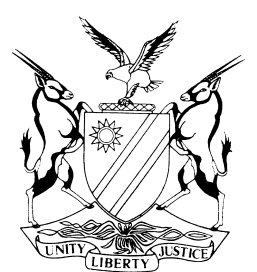3

CASE NO. CC 42/2009
IN THE HIGH COURT OF NAMIBIA
In the matter between:
THE STATE
and
GERHARD GEISEB
CORAM: SIMPSON, AJ.
Heard on: 24 August 2011
Delivered on: 25 August 2011
SENTENCE
SIMPSON, AJ.: [1] Gerhard Geiseb, you had been convicted of one count of rape, c/s 2(1)(a) of Act 8/2000, and one count of committing an indecent act with a child under the age of sixteen (16), c/s 14(b) of Act 21/1980, as amended.
[2] Following the conviction both counsel placed factors before court which should be considered in imposing an appropriate sentence. Counsel for the state also called a witness, the grandmother of the victim on count 1, who explain court how the behaviour of the victim was prior the incident and after the incident. You, Mr Geiseb, had the opportunity to testify under oath to place your personal circumstances before this court.
[3] It is important to note that the penalty in count 1, is governed by a prescribed minimum sentence. The Combating of Rape Act, Act 8/2000, also makes provision that if the court find any compelling and substantial circumstances, the court may deviate from the prescribed minimum sentence and impose a lesser sentence. To determine whether compelling and substantial circumstances exist, the court must take all the factors placed before it, including the mitigation as well as the aggravating factors.
[4] For the court to impose a suitable sentence, a balance of the circumstances of the offender, the crimes committed and the interest of society, blended with a measure of mercy, should be achieved by this court.
[5] Looking at the personal circumstances, it is stated that you have two (2) children; that you have been in custody since the date of your arrest, being three (3) years awaiting the finalization of this matter. You had been convicted previously of rape, although under the common law. Although your previous conviction in respect of rape is older than ten years, the common law does not prescribe that such a previous conviction must be disregarded.
[6] Looking at the crimes committed, especially count 1, this is not only a serious offence, but also prevalent nationwide. The offence of rape is shockingly brutal and cruel, in view of the photo plan, which was handed up during the trial as exhibit “E”. The victim was severely injured.
[7] It is important to note, that the witness called by the state in aggravation, stated that there was a process of healing visible on the vagina of the victim. This is a sign of recovery of the victim.
[8] However, regarding the offence of the indecent act with a child aged 11, no visible damages were caused upon the victim/complainant.
[9] Looking at the interest of society, the court has a duty to protect the public against those who commit crimes such as you have committed.
[10] In mitigation, you did not put the court in your confidence, by electing not to testify. By your failure to do so, you did not assist the court in determining from the mitigating factors whether there are compelling and substantial circumstances present to impose a lesser sentence.
[11] It is indeed so that you are a subsequent offender. You showed no sign of remorse.
[12] I find no compelling and substantial circumstances to impose a lesser sentence.
[13] I refer to S v Bezuidenhoudt, 2006 (2) NR 613, a judgment delivered by Damaseb, JP, where the offender was also convicted of rape, c/s 2(1)(a) of Act 8/2000, and was also a subsequent offender, convicted of rape under the common law, and no compelling and substantial circumstances existed, the offender was sentenced to fourty five (45) years imprisonment.
[14] You are therefore sentenced as follows:
(i) on count 1, that of rape with coercive circumstances to 45 years imprisonment;
(ii) on the count of committing an indecent act with a child aged 11, to 2 years imprisonment.
These two sentences are to run consecutively.
SIMPSON, AJ